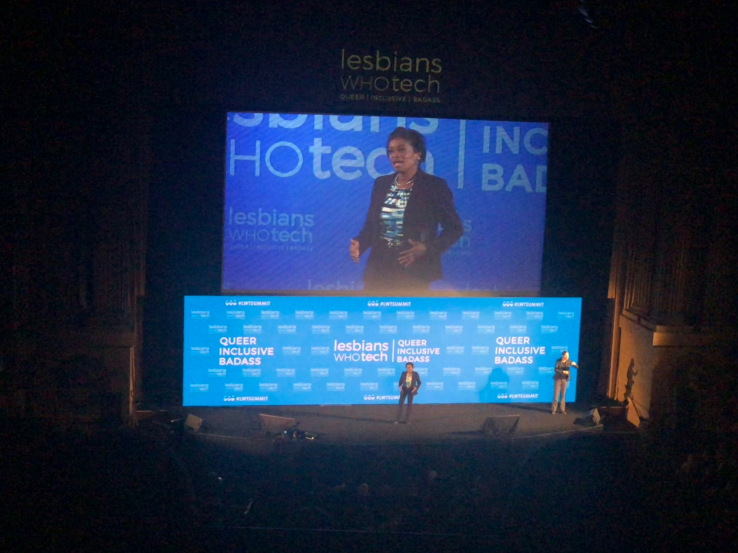
When the FCC rolled back net neutrality protections in December, advocates for the free, open internet came out in masse. Although the decision has been made, the fight isn’t over yet, and that’s what FCC Commissioner Mignon Clyburn reiterated today at the 5th annual Lesbians Who Tech conference at the Castro Theatre in San Francisco.
“What the FCC did was to depress — was to strip away the freedoms of the most enabling platform, the most equalizing platform of our time,” the commissioner said on stage this morning.
Thanks to net neutrality and an open internet, the greatest movements in modern history, like #BlackLivesMatter and #MeToo, unfolded in front of the public, Clyburn said. Without the open internet, she continued, the masses would not have heard about what was happening in Ferguson, Missouri. The local press, she said, did not think that was important.
“But a hashtag and a presence over the internet enabled that story to be told,” Clyburn said. “The suffering of those people in Missouri was no longer buried on the back pages of anyone’s headline.”
The question in front of us today, Clyburn said, is about the public’s willingness to do whatever it takes to keep an open internet.
Last month, the FCC’s “Restoring Internet Freedom” order officially went into effect when it was entered into the Federal Register. Its entrance into the Federal Register, however, meant citizens, attorney generals and other legislators could officially start battling against the FCC’s unpopular December vote to repeal net neutrality.
Just last week, Senator Ed Markey (D-MA) introduced legislation to reestablish 2015’s net neutrality rules. As TechCrunch’s Devin Coldewey noted, the bill is unlikely to reach the president’s desk, but it’s an important step in this long-term battle over internet regulation.
As Clyburn said in her talk, the gatekeepers should not be the ones to control and dictate the public’s online presence.
She later said, “That’s the challenge we have in front of us today.”

